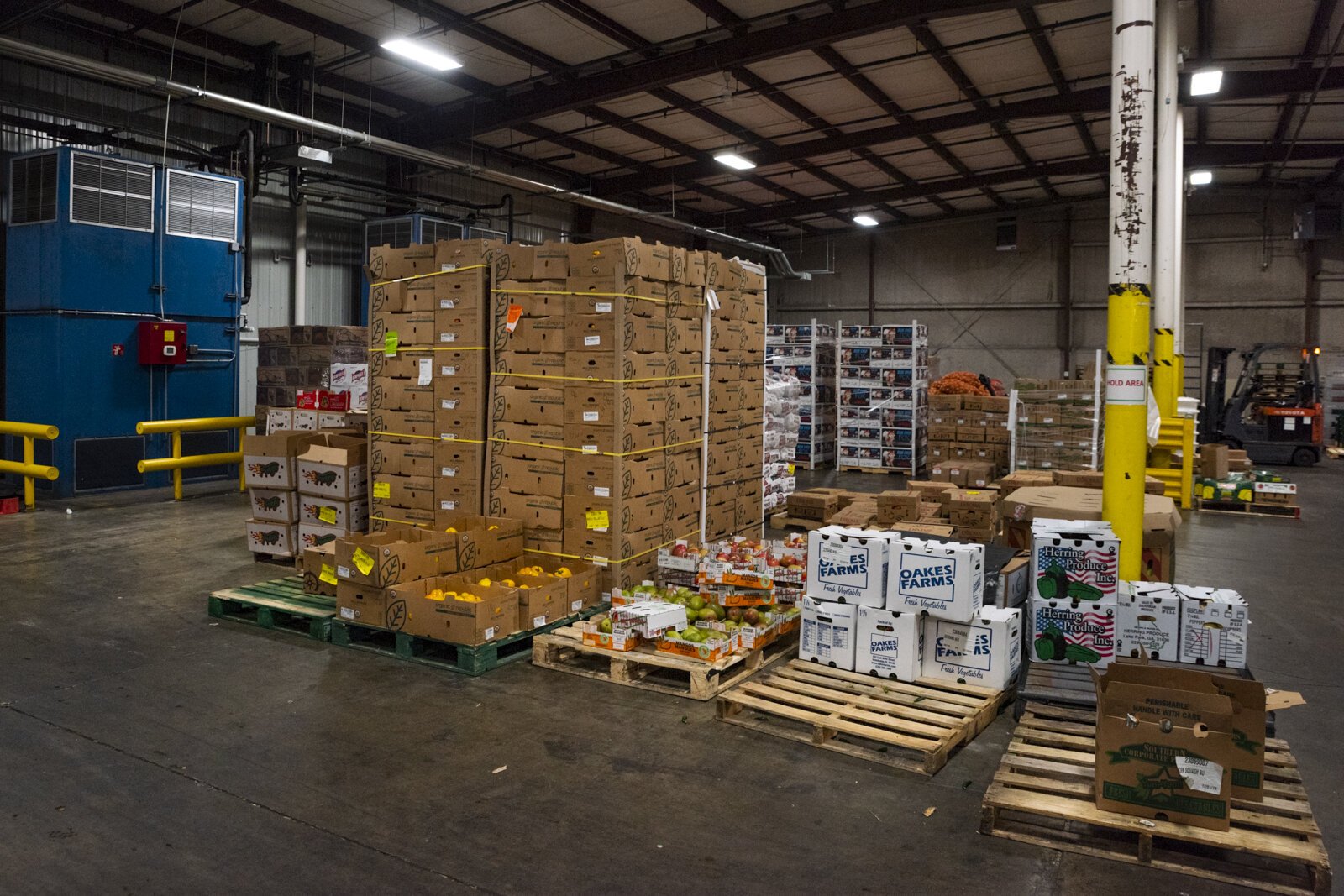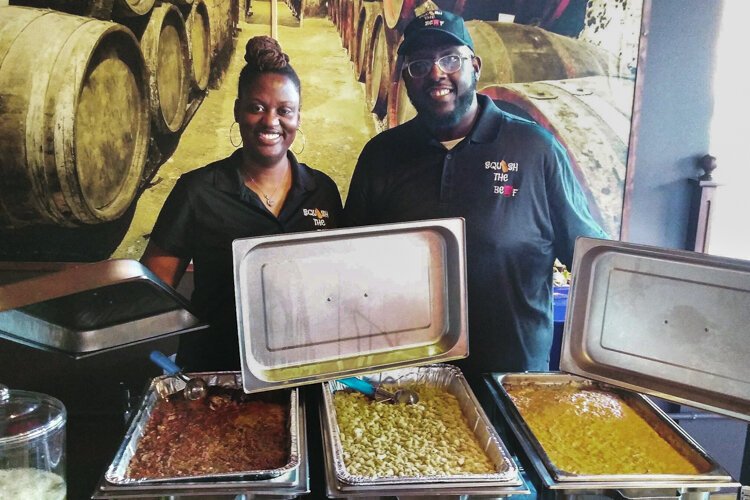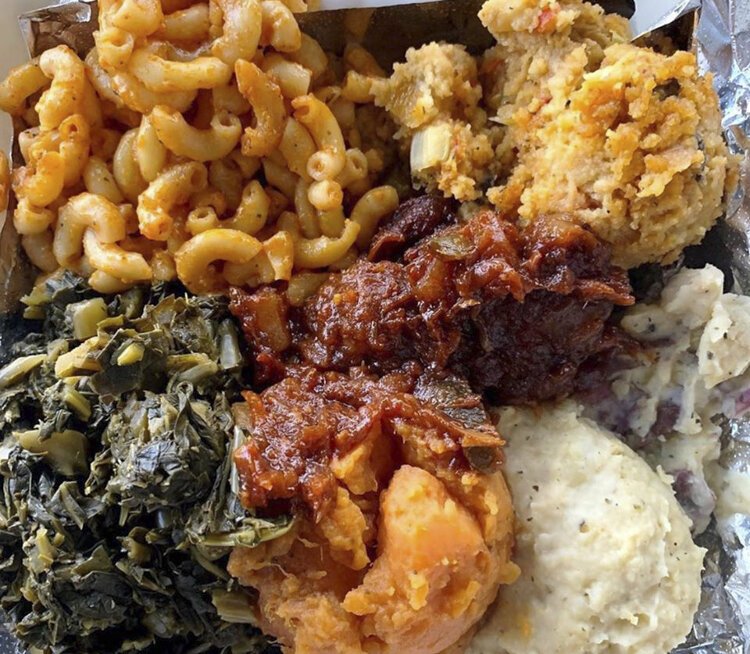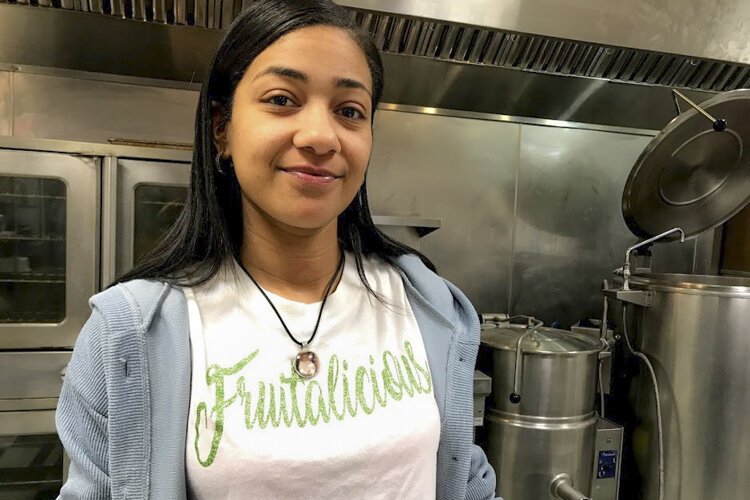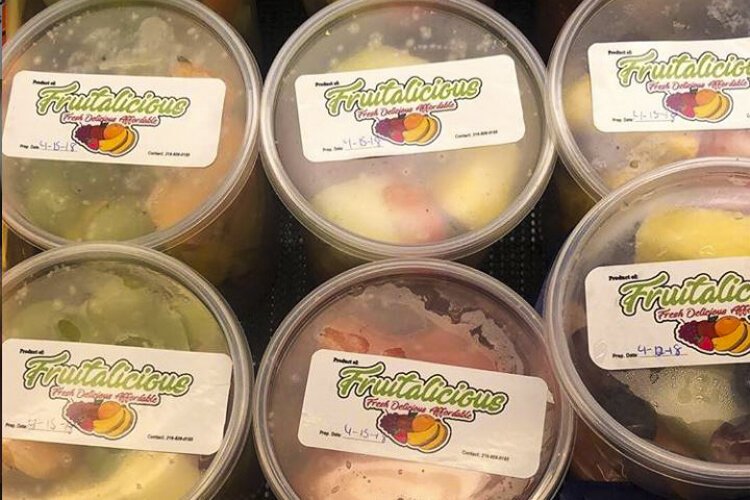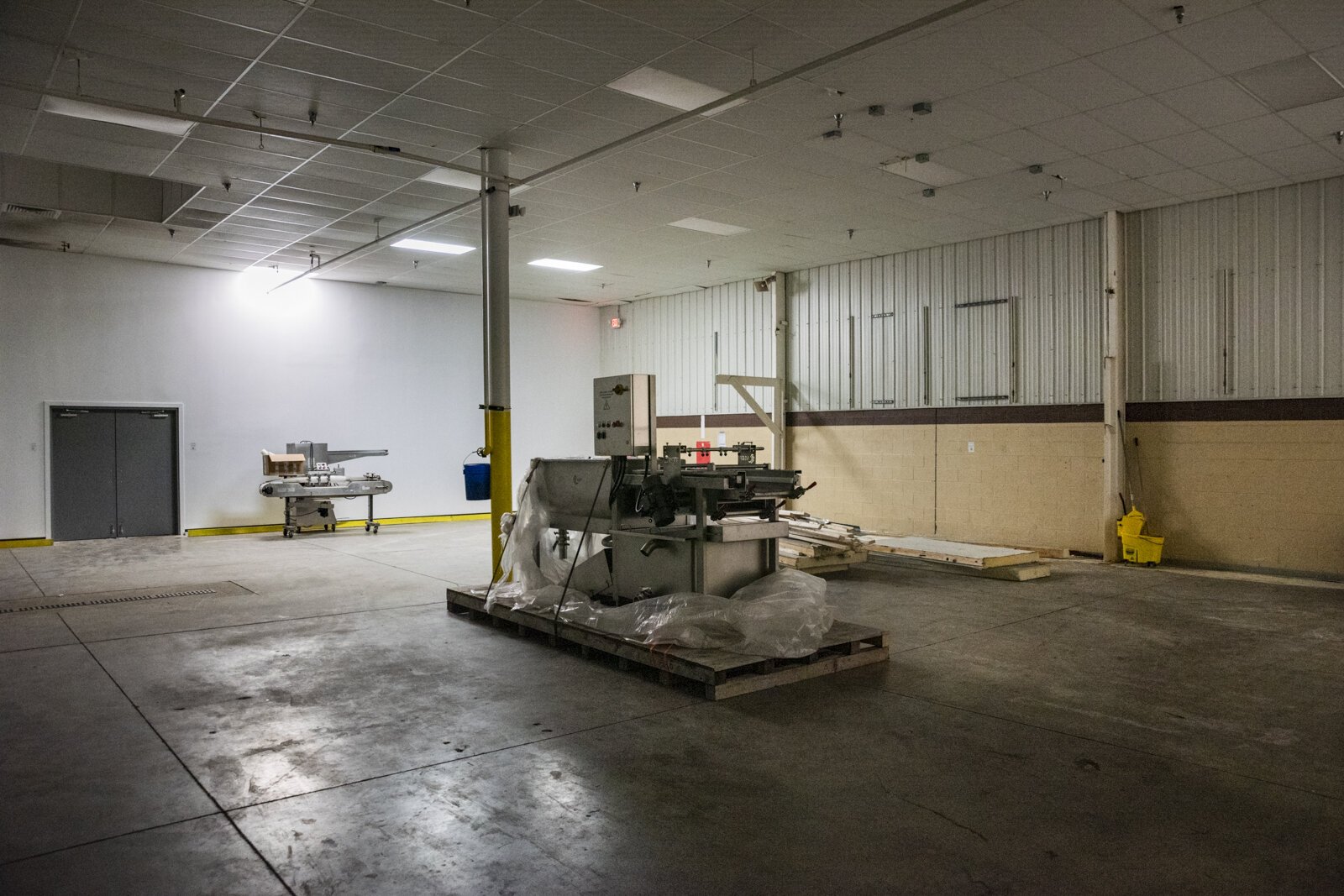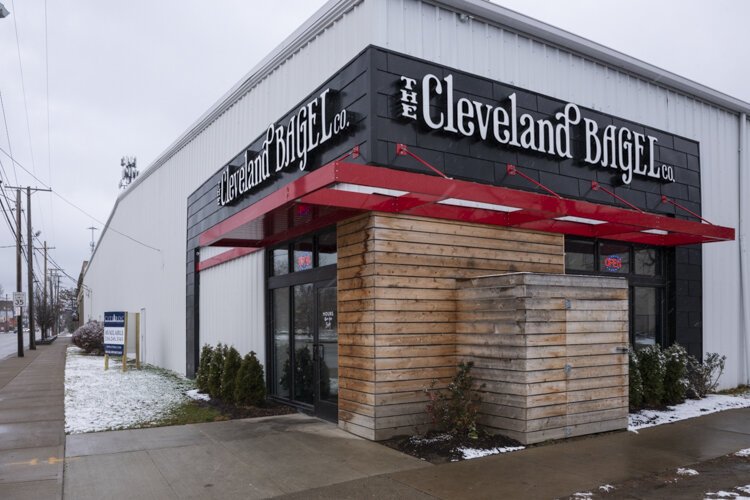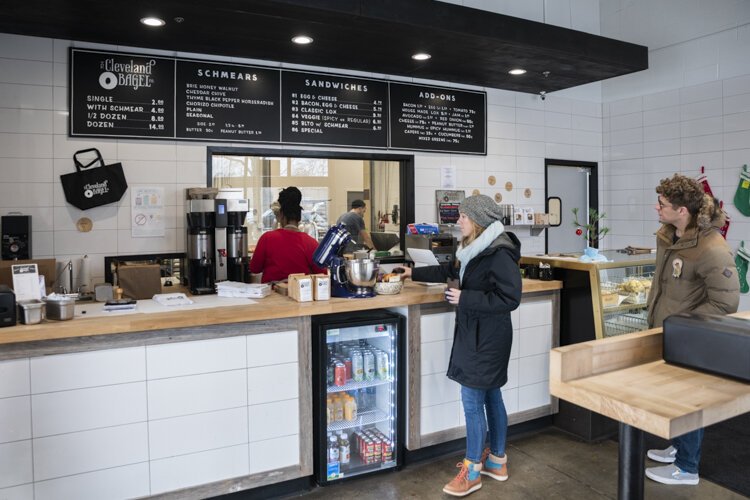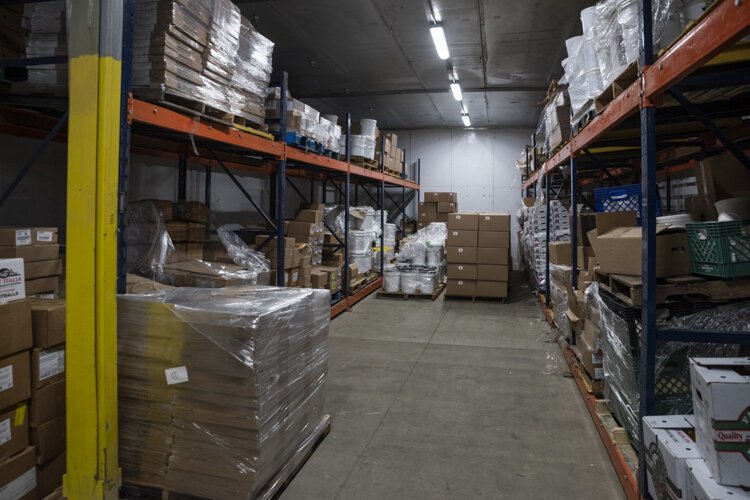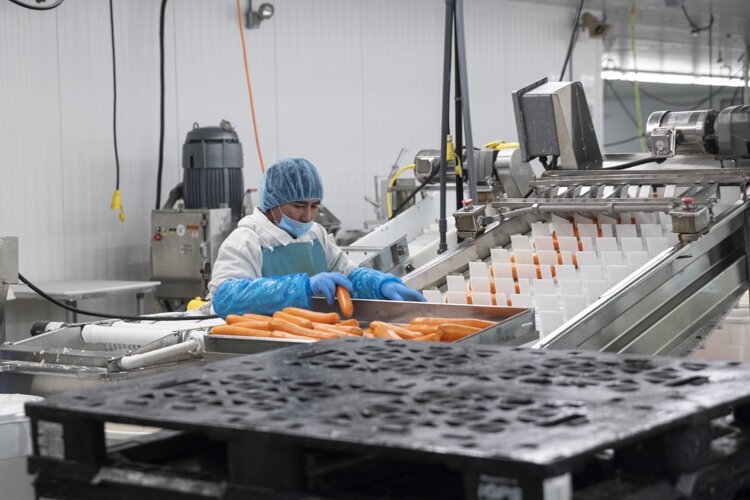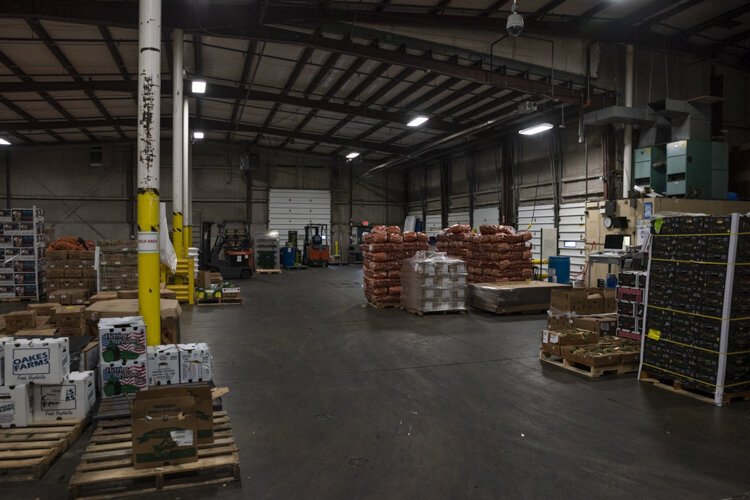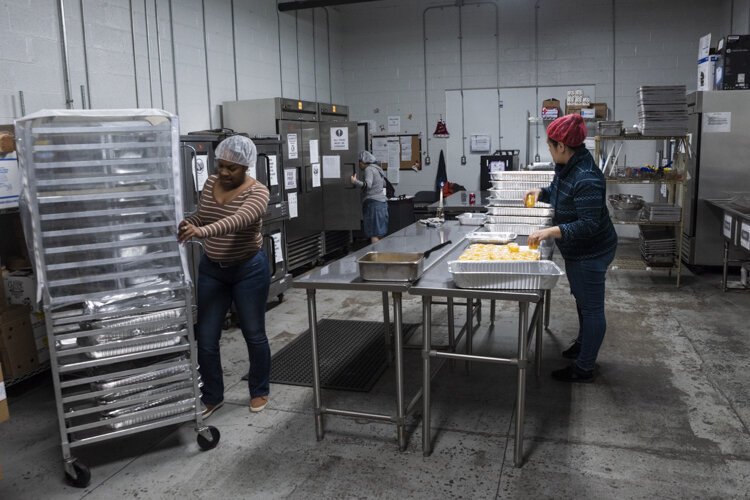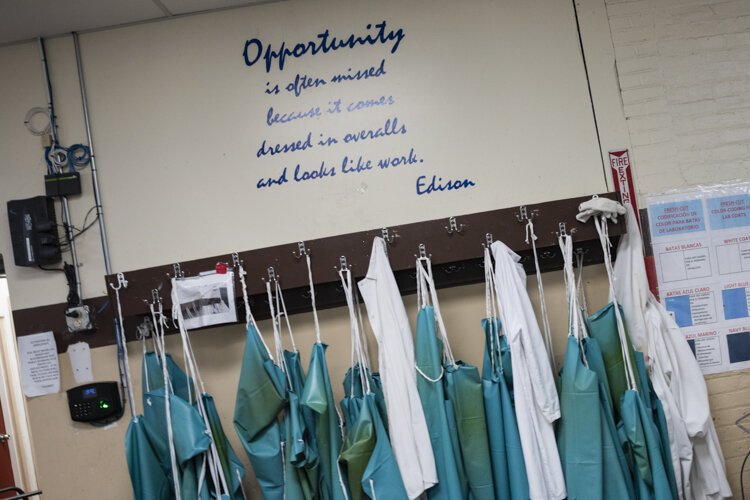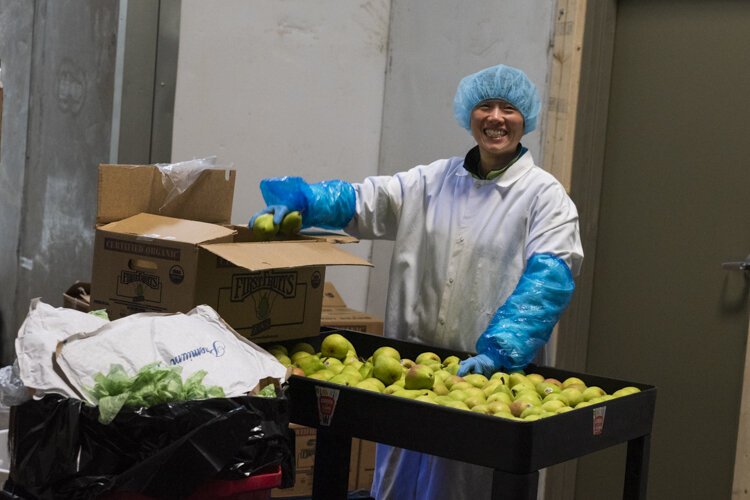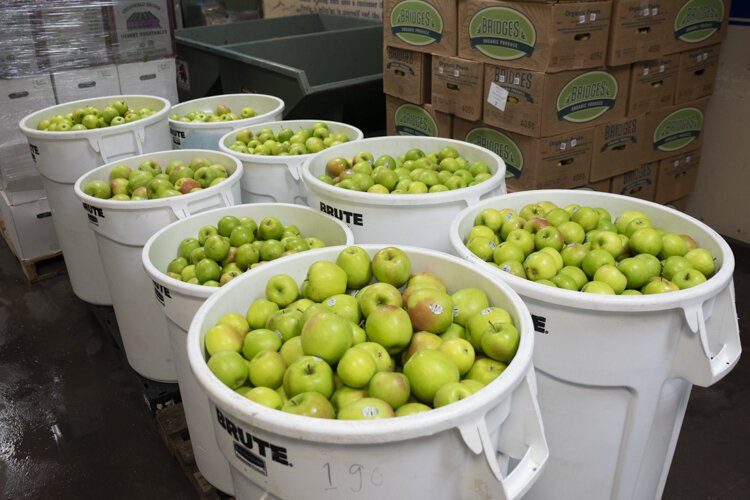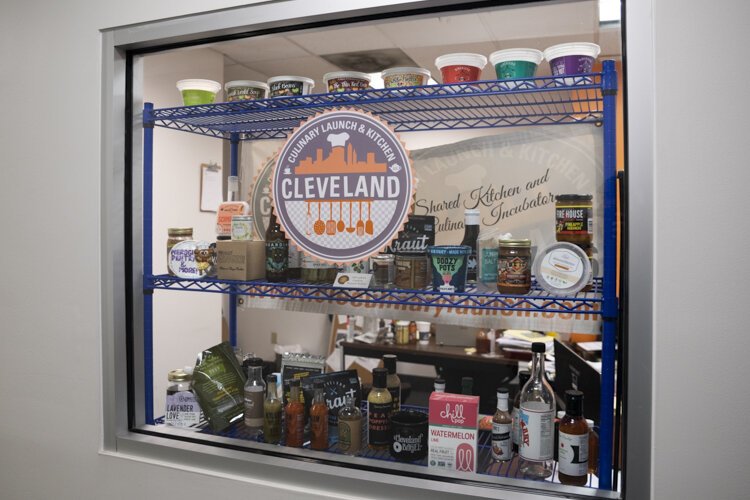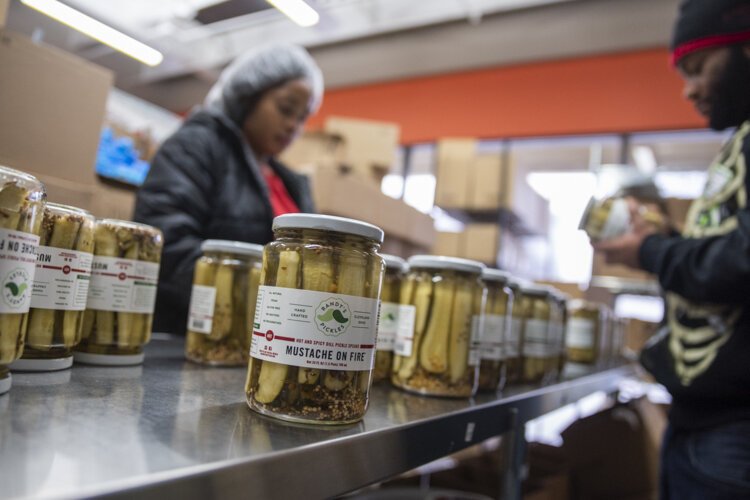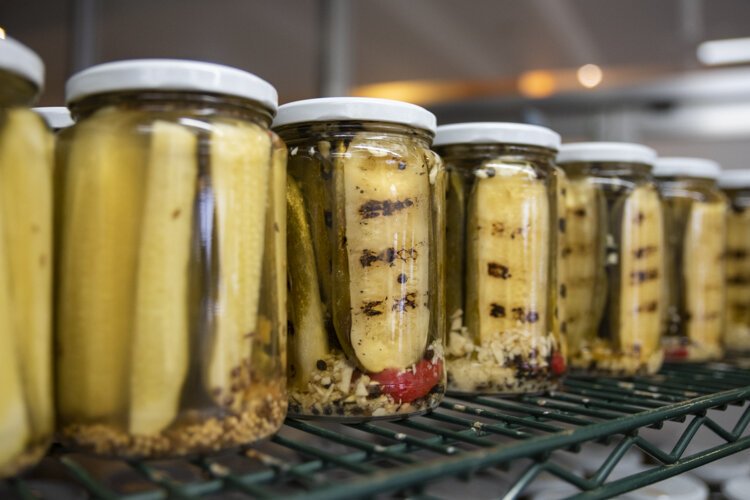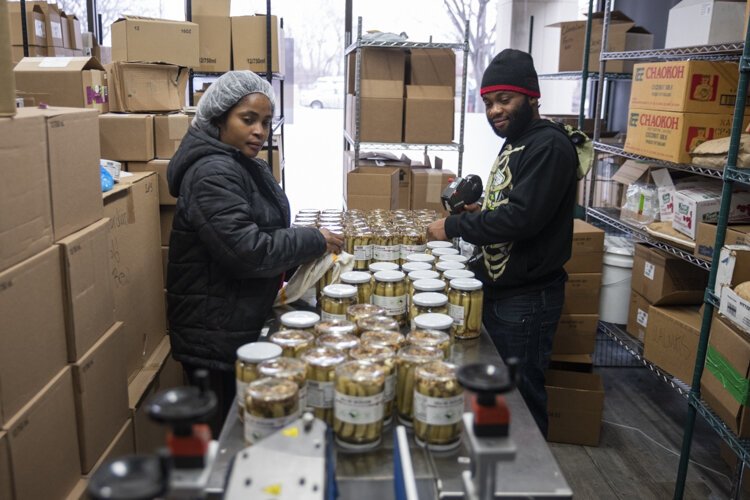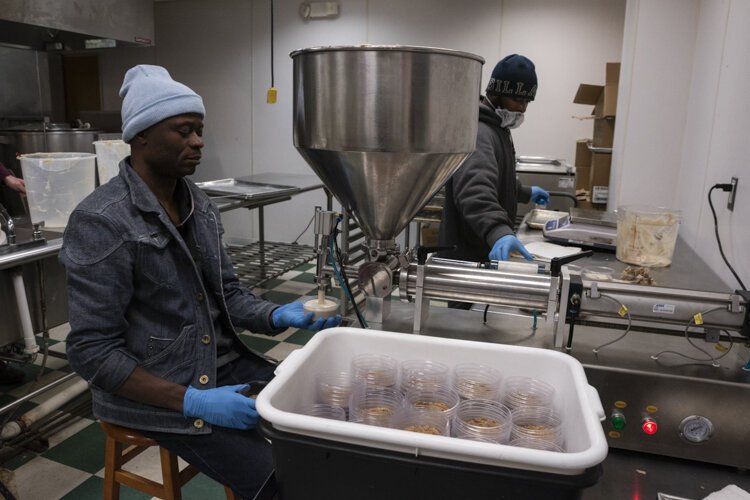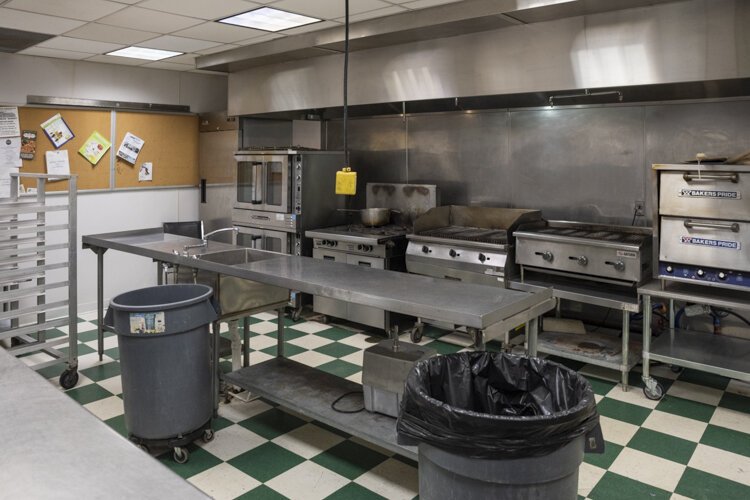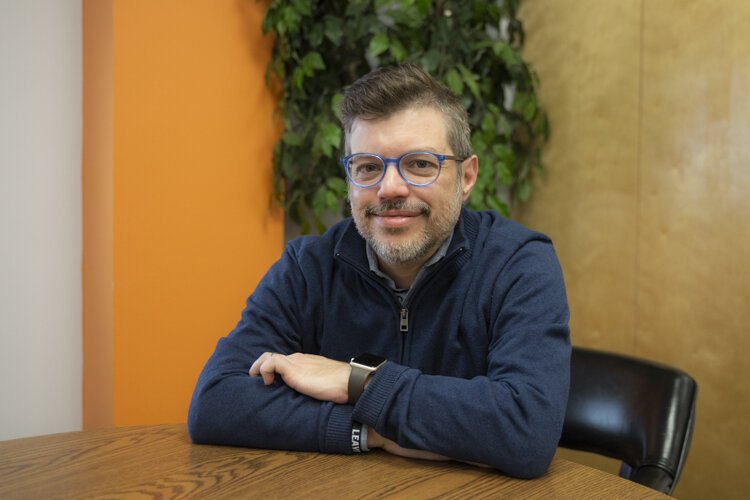
Central Kitchen sets the table for minority-owned craft food startups to flourish
Eric Diamond was on vacation when he got a call from his Central Kitchen partner, Gordon Priemer.
“We were looking for 30,000 square feet of space,” says Diamond. “Gordon called me and said, ‘Hey, I just toured this building. It's got cooler space, it's got more electrical than we’ll ever need, it’s a food grade facility. The only problem, it's 137,000 square feet.'”
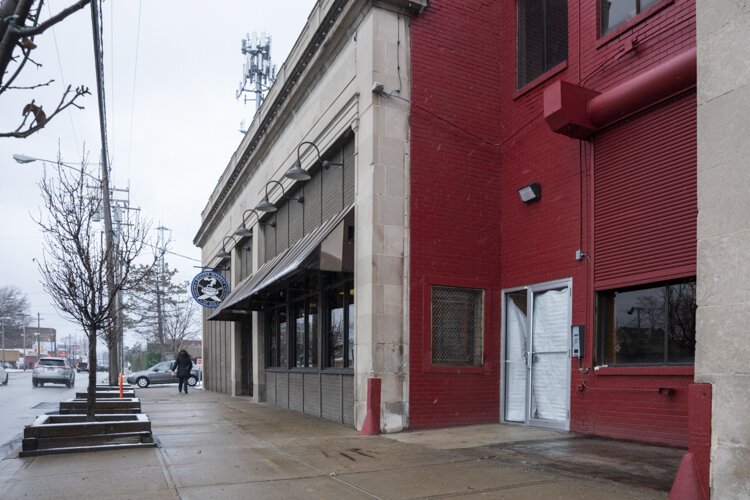 They needed to expand, but not that much. “We can't fill 137,000 square feet,” Diamond told him. “He said, ‘I know, I know.’ So when I get back from vacation, he says, ‘Let's go look at it again.’”
They needed to expand, but not that much. “We can't fill 137,000 square feet,” Diamond told him. “He said, ‘I know, I know.’ So when I get back from vacation, he says, ‘Let's go look at it again.’”
They couldn’t resist. And so in February 2018, they bought the building, now called the Central Kitchen Food Hub, at 7501 Carnegie Ave. The seller rented space in it from them while building a new facility in Willoughby but finally vacated this month.
Now Central Kitchen has two locations two miles apart. From incubating startups, to co-packing for successes like Randy's Pickles, to supporting ghost restaurants, to trends like fermenting and veganism, they’re taking the local craft food scene to new heights. And they’re just getting started.
“Our vision is to be the center of the ecosystem for craft food creation and production in northeastern Ohio,” Diamond says.
Starting small
They began in 2013 as a food business incubator called the Cleveland Culinary Launch and Kitchen, at 2800 Euclid Ave. They took over a lease from Cleveland State University for an unwanted commissary in exchange for the kitchen equipment, usually a food operation’s main expense. “We lucked out,” he says.
It’s grown into the busiest shared-use kitchen in Ohio, Diamond says. They offer classes, business support, licensing help, mentoring, and networking.
“We never, ever expected it to grow the way it did,” Diamond says. “We thought we’d have a little incubator where we’d be able to do some economic development utilizing food.”
Low barrier to entry
Startup costs for craft food are lower than for other industries, so it seemed like a good way to help minorities get into business, says Diamond, who previously worked at the Economic Community Development Institute, an intermediary micro-lender.
The fully licensed commercial kitchen has 4,000 square feet of shared production and storage space. You can rent it by the hour or the month, 24 hours a day, seven days a week. An app simplifies scheduling production time. “It blocks out the space, the equipment that you want, so nobody else can book it, and then it instantly charges you for it,” he says.
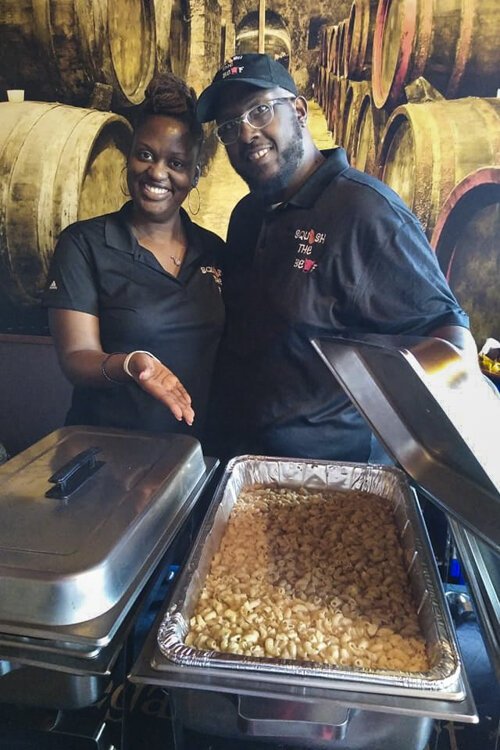 Kurtis Williams likes the flexible hours. “I can come and go as I please,” the Macedonia resident says. He works full time as a behavioral specialist on the third shift. And he spends 10 to 20 hours a week at Central Kitchen as executive chef for his startup, Squash the Beef, a vegan comfort food catering business.
Kurtis Williams likes the flexible hours. “I can come and go as I please,” the Macedonia resident says. He works full time as a behavioral specialist on the third shift. And he spends 10 to 20 hours a week at Central Kitchen as executive chef for his startup, Squash the Beef, a vegan comfort food catering business.
Diamond and Priemer expected their clients would be existing businesses that needed more room. “But what we found was 99% of the people walking through the door were startup businesses,” Diamond says. “They had never been in business. So we created a program where we took 10 companies at a time through eight weeks of training. Everything you need to know about starting a food-based business.”
It paid off for Cherrelle Taylor. “When I first started here, all I knew was I wanted to sell fruit,” she says. The Willoughby resident works three jobs, including cutting fresh fruit for her startup, Fruitalicious. She joined Central Kitchen in 2017. Now 11 stores carry her fruit bowls.
“They taught me everything,” Taylor says. “They taught me pitches on how to get stores. They broke everything down to me that I needed, all the codes that I needed to follow, all the guidelines. They helped me get my insurance. I had no idea I needed insurance. I needed labels. I needed the kitchen. I didn't have any of that. … I can call them at any time with any problem, and they'll help me get through it.”
After 40 sessions, Central Kitchen has trained 525 people. Eighty companies with 191 workers now share the kitchen. Minorities or women own 77% of the companies. And they’ve created 425 jobs since 2013.
“It's all craft food,” Priemer says. “And all the businesses that we’ve touched have been created in Cleveland and are still in Cleveland six years later. … They're proud to be from Cleveland.”
Candace Maiden, Williams’ partner at Squash the Beef, handles the 9-month-old startup’s business side, booking pop-up events and festivals and taking orders online. A Laurel School teacher by day, she says, “I find it very cost effective to operate out of this launch kitchen and use it as you need it instead of just expanding your home kitchen.”
Williams enjoys the shared kitchen’s atmosphere. “You get to meet a lot of other companies here,” he says. “A lot of them, they're not vegan, but sometimes people have a stereotype of what vegan food is, and what you can eat and cannot eat. So once I fix it, I always give a sample. I’m like, ‘Hey, can you taste this for me?’ And they’re like, ‘Oh my goodness, I wouldn’t know this is vegan if you didn't tell me.’”
Moving up
After one or two summers selling at farmers markets, some startups see sales grow enough to afford their own space. “Or they want to go the co-packing, co-manufacturing route, where somebody makes their product for them, or they just decide it’s too hard to be in business,” Diamond says.
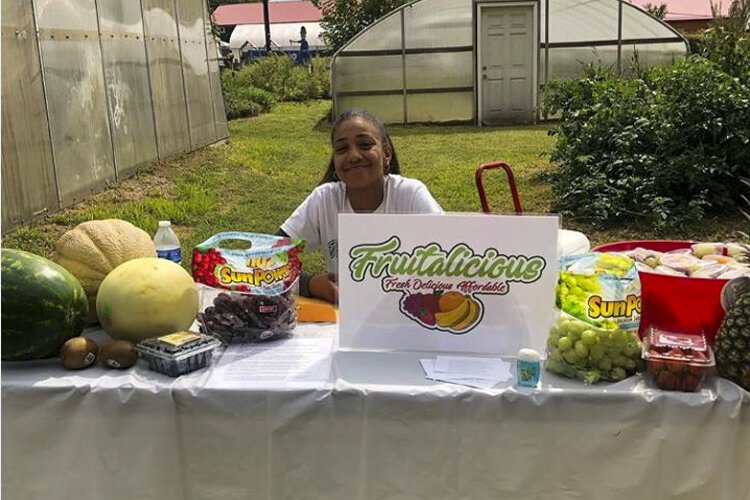 Cherrelle Taylor of Fruitalicious at Fresh Fest 2019
Cherrelle Taylor of Fruitalicious at Fresh Fest 2019
The work isn’t easy. “You hustle, especially when you're starting out and you're selling at farmers markets,” he says. “This is a side hustle for a lot of them. They’re trying to see if this works.”
If it takes off, they might graduate to the Food Hub. The third-largest facility of its kind in the country, it provides co-packing services for higher volume companies. Features include giant coolers at various temperatures and eight loading docks.
“Our thought originally was we would take half of the building and sell the other half,” Diamond says. “But as soon as people heard that we purchased this building, we started getting phone calls.”
Business is so good, the question now is whether the new space will be enough. “We anticipated it would take us 18 months to fill up the coolers,” he says. “It took us 60 days.”
Success stories
Cleveland Kraut leases 17,000 square feet of fermentation space at the Food Hub. They are in 9,000 grocery stores nationwide. “They just got into the Indonesian market, so they'll be our first client that started here and went global. They'll do about $10 million next year in sauerkraut.”
Another success is Randy’s Pickles, founded by Andrew Rainey. “He came to us last year and said, ‘I really need help with co-packing. I can't produce this myself anymore.’ So we started a co-packing operation at the Food Hub.”
Rainey was producing 300 cases a week. Now it’s 3,000. “He just got into Krogers, Giant Eagle and Wegmans,” Diamond says. “He's really expanded, so us making his product has allowed him to do nothing but go out and sell.”
But he does stop in to test each batch. “He grabs a jar of pickles that we've produced, opens it up, and tastes it to make sure that it's how he wants it. And there's been times where he's been like, ‘Hold off, guys. This one’s got a little too much salt in it, let's redo this batch.’”
Mystery delivery
Ghost kitchens, a hot new trend, are designed for delivery only, because there’s no physical restaurant. Half a dozen companies use Central Kitchen as their virtual restaurant. Their menu is online, and Uber Eats or DoorDash delivers their orders. No servers, no cashiers. “They’re just selling their products on those apps when they feel like it,” Diamond says. “And people buy.”
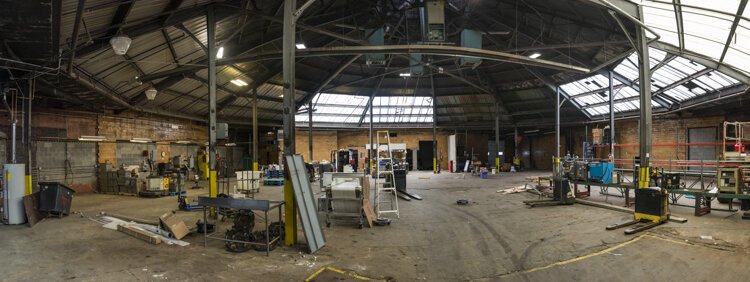 One young man only makes tamales Thursday through Saturday from 9 p.m. to 2 a.m. “For him, it’s extra income. He works when he wants to work. Nobody would know that he’s not a real restaurant, because he’s producing out of here. He’s doing really well.”
One young man only makes tamales Thursday through Saturday from 9 p.m. to 2 a.m. “For him, it’s extra income. He works when he wants to work. Nobody would know that he’s not a real restaurant, because he’s producing out of here. He’s doing really well.”
So what’s next for Central Kitchen? New retail space, a new sign, and new grant money to pay for projects are the latest developments.
Diamond is putting his grant-writing skills to good use since turning the shared kitchen into a nonprofit this year. They won grants this quarter from the Gund Foundation, PNC Bank, and the U.S. Department of Agriculture. The money will pay for a new floor at the shared kitchen, an updated website, online business classes, scholarships, and a food testing lab. And he is seeking a grant for a truck to carry their food waste.
Commuters hurrying by the Food Hub on Carnegie Avenue will notice a new outdoor sign going up this month, and three food retailers are being sought to open new storefronts between the Souper Market and Cleveland Bagel this spring, giving Midtown workers a much-needed lunch destination.
What does craft food mean for Cleveland? “You talk about the meds and ed sector, and you talk about manufacturing,” Diamond says. “We really think that food can be that fourth leg of the stool.”

